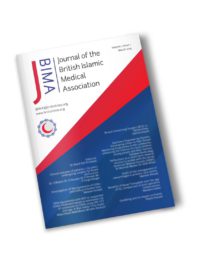
Purpose
This essay seeks to discuss the consequences of modern career working styles. The analysis of this will be through the lens of the spiritual paradigm, exploring the metaphysical aspects of our work.
Hypothesis
Islam is a religion that encourages moderation. In today’s world, it is becoming increasingly challenging to maintain moderation in our working lives due to a shifting baseline that has normalised the imbalance between work and life. This shifting baseline presents challenges for our spiritual health. Are we able to adequately introspect and examine our lives if so much of ourselves is given to our jobs? A trade-off is inevitable and there has become an ever increasing need to reconcile the relationship between our working lives and our spiritual development. When we consider rizq is a matter decreed long before we are born, as believers, it makes very little sense to sacrifice the provision of our souls for material provision already set in stone by Allah.
Discussion
Statistics show that burnout is on the rise globally. The demands of roles within all divisions of sector are increasing and there seems to be a shifting baseline tipping the balance of work/-life in favour of work. Sunday is no longer a day of rest, and evenings no longer necessarily count as ‘free’ time. Many of us try to use our time off to get ahead. That is without mentioning the difficulty in being able to mentally detach from the stresses of our jobs outside of work.
In the context of doctors, the latest reports from the General Medical Council (GMC) indicate a third of trainees experienced burnout ‘to a high or very degree because of their work’, relative to around a quarter in previous years (2). Three out of five said they always or often felt worn out at the end of a working day’, while 44% felt their work was ‘emotionally exhausting’ to a high or very high degree. Evidently, with rising industrial action these figures have deep implications for the future workforce.
Conclusion
The narrative that has allowed this baseline to shift is one that glorifies the over-worker by referring to them as ‘hard-workers’. However, it is important to ask ourselves whether we are truly hardworking or whether we have become excessive in our work due to a shift in societal norms. If we recognise we are being overworked and it is of detriment to our spiritual development, are we able to make the necessary sacrifices at the expense of career development, resting comfortably in the knowledge that our rizq is written by Allah and it is He who sustains us? The answer to this question reveals a lot about the state of our spiritual health. In the context of an increasingly burnt out NHS workforce, more research is required within the Muslim population to understand and analyse the effects of current working styles and whether spiritual health needs are being adequately met.
References
- Ghassemi AE. Burnout in nurses during the COVID 19 pandemic: The rising need for development of evidence-based risk assessment and supportive interventions. Evidence-based nursing. 2022 Jul 1;25(3):94-.
- Wise J. Burnout among trainees is at all time high, GMC survey shows. BMJ: British Medical Journal (Online). 2022 Jul 19;378:o1796.

